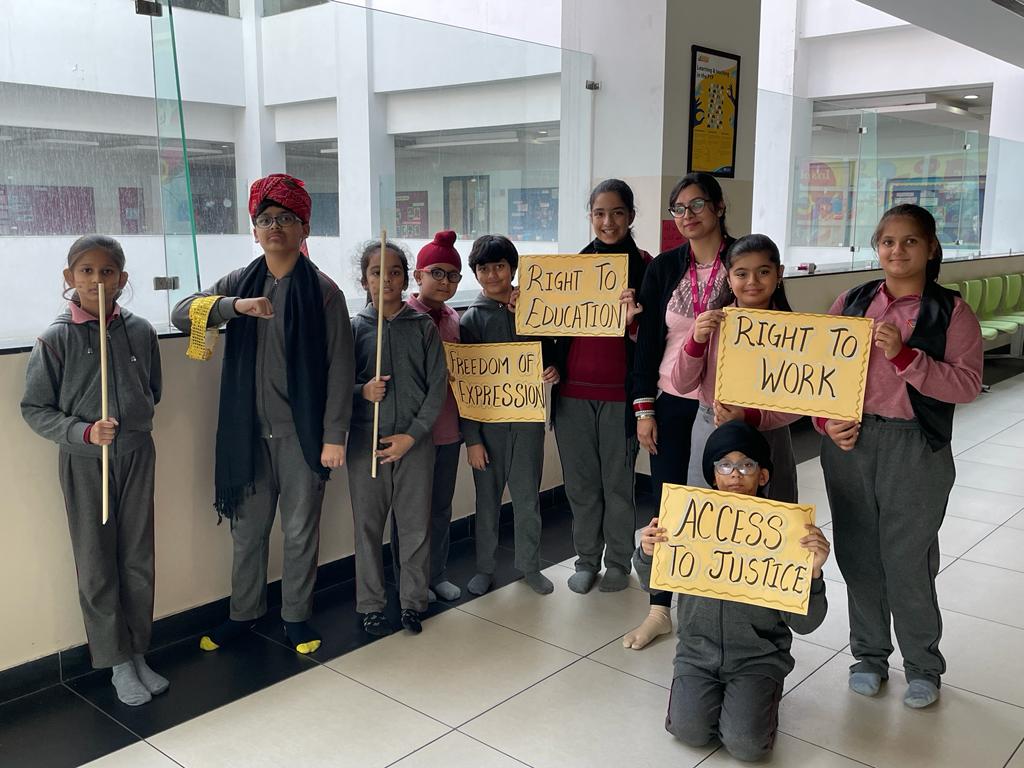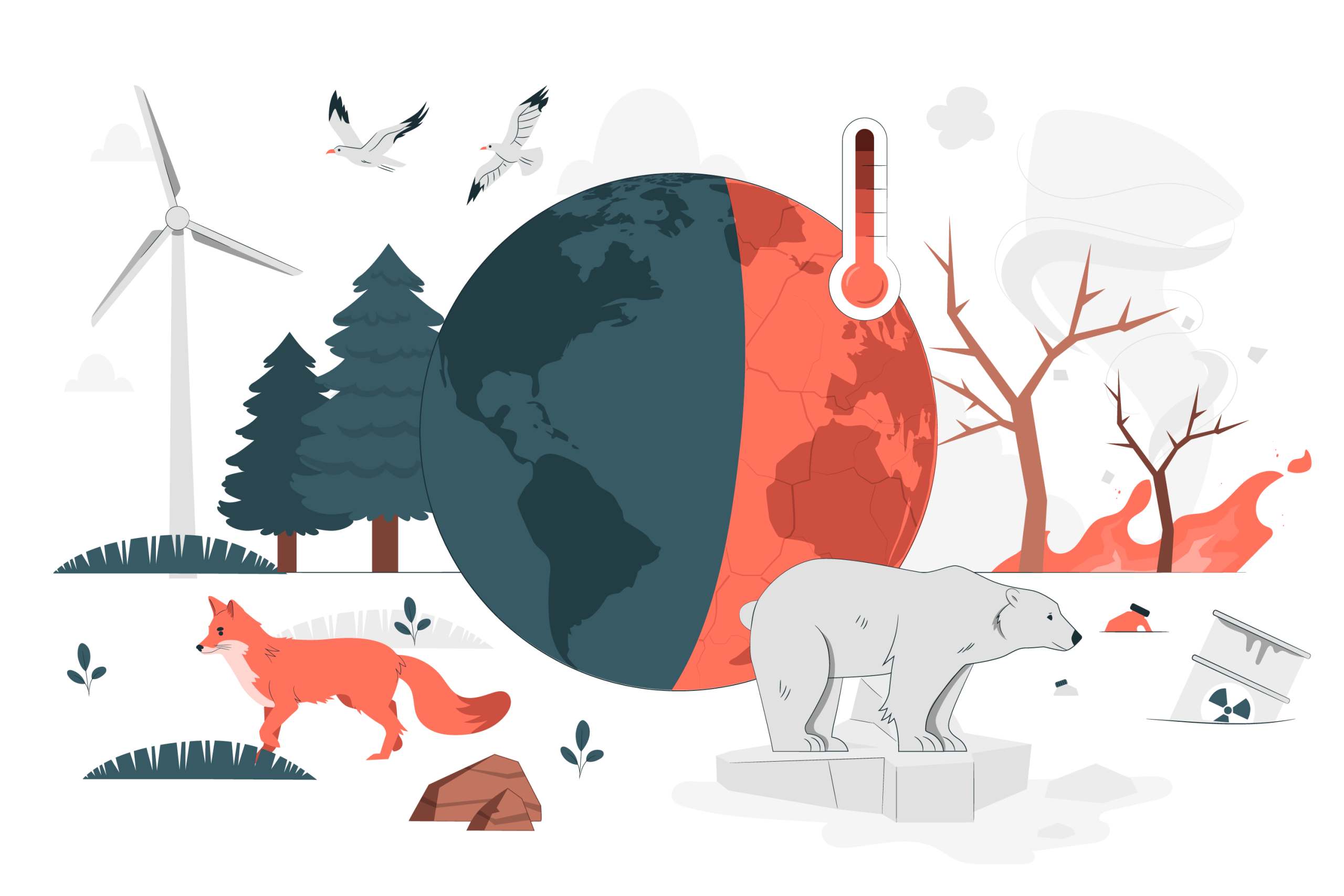Sustainable Energy Solutions: How Students Can Lead the Green Revolution
Introduction:
As the world faces the pressing challenge of climate change and environmental degradation, the need for sustainable energy solutions has never been more urgent. At Genesis Global School, the top schools in noida where the next generation holds the power to drive this transformation, and students today are uniquely positioned to lead the green revolution. Through education, innovation, and activism, young minds can contribute to developing and implementing sustainable energy solutions that will shape a cleaner, greener future.
This article explores how students can prepare for and take active roles in the sustainable energy sector, why sustainable energy is crucial, and what opportunities exist for future leaders in this field. We’ll also highlight the importance of STEM education and hands-on learning in preparing students for careers in renewable energy and environmental sustainability.
The Growing Importance of Sustainable Energy
Sustainable energy refers to energy generated from renewable resources that have a minimal impact on the environment. This includes solar, wind, hydroelectric, geothermal, and biomass energy, all of which are pivotal in reducing our reliance on fossil fuels. The transition to renewable energy is essential not only for reducing greenhouse gas emissions but also for ensuring a sustainable and secure energy future.
As global energy consumption continues to rise, the demand for clean energy solutions is expected to grow. According to the International Renewable Energy Agency (IRENA), renewable energy could supply 85% of the world’s electricity by 2050, significantly cutting carbon emissions and creating millions of new jobs in the process. For students interested in making a positive impact on the planet, sustainable energy offers a wealth of opportunities.
Careers in Sustainable Energy: Emerging Fields and Opportunities
The field of sustainable energy encompasses a wide range of careers, from engineering and environmental science to business and public policy. As the renewable energy sector grows, so does the demand for skilled professionals who can drive innovation and implement energy solutions at a global scale. Here are some of the key fields where students can make a difference:
- Renewable Energy Engineering
Renewable energy engineers design, develop and manage energy systems that harness natural resources such as sunlight, wind, and water. They play a critical role in creating technologies that power solar panels, wind turbines, and hydroelectric plants. Students interested in engineering should focus on courses in physics, mathematics, and computer science to prepare for this career. Schools that offer hands-on engineering labs and participation in renewable energy projects help foster the skills necessary to excel in this field.
- Environmental Science
Environmental scientists study the effects of human activity on the environment and develop strategies to mitigate environmental damage. They analyze air and water quality, assess the impacts of renewable energy projects, and work to protect natural ecosystems. For students interested in the intersection of science and sustainability, a strong foundation in biology, chemistry, and ecology is essential. Participation in environmental clubs and sustainability initiatives can also provide valuable experience.
- Sustainable Business and Entrepreneurship
The green economy is growing, and many companies are looking to innovate in the sustainable energy space. Entrepreneurs in this field focus on creating businesses that offer renewable energy products, energy-efficient technologies, or sustainable practices. Students interested in business can explore courses in economics, entrepreneurship, and marketing while also seeking opportunities to work on sustainability-focused projects. Schools that offer business incubators or innovation labs provide ideal platforms for students to develop and launch their own green ventures.
- Energy Policy and Advocacy
Effective public policy is essential for driving the widespread adoption of sustainable energy. Students with an interest in law, public policy, and social justice can pursue careers as energy policy analysts or environmental advocates, working to influence government decisions and corporate practices. By focusing on courses in political science, environmental law, and economics, students can prepare to lead policy reforms that support a green future.
- Energy Storage and Grid Management
One of the key challenges of renewable energy is storing and managing energy to ensure a consistent supply. Engineers and scientists working in this area develop new technologies for energy storage, such as advanced batteries, and design smart grids that can efficiently distribute renewable energy. Students interested in this field should develop a strong background in physics, engineering, and computer science, with a focus on energy systems and electronics.
The Role of STEM Education in Sustainable Energy Careers
Science, Technology, Engineering, and Mathematics (STEM) education is critical for preparing students to enter the sustainable energy sector. As sustainable energy technologies continue to evolve, professionals in this field will need to be proficient in areas such as data analysis, engineering design, and technological innovation.
Building a Strong Foundation in STEM
STEM subjects lay the groundwork for understanding the complexities of energy systems, environmental impacts, and the technology required for sustainable solutions. Schools that offer a robust STEM curriculum provide students with essential knowledge in areas like physics, chemistry, and mathematics—subjects that are crucial for designing renewable energy systems.
Hands-On Learning and Innovation
In addition to classroom learning, hands-on experiences are vital for fostering innovation and creativity. Engineering labs, maker spaces, and sustainability projects allow students to apply theoretical knowledge to real-world problems. For example, students can build solar-powered devices, design wind turbines, or participate in energy-saving initiatives. These practical experiences not only enhance learning but also prepare students for the technical challenges they will face in their careers.
Coding and Data Analysis
With the rise of smart grids, energy management systems, and digital tools for monitoring renewable energy production, coding and data analysis skills are increasingly important. Students who learn coding languages like Python, C++, and R will be better equipped to develop software for energy management, analyze energy consumption data, and design algorithms that optimize renewable energy use.
Environmental Impact Studies
Understanding the environmental impact of energy production is a critical aspect of sustainable energy. Students who engage in environmental science projects, such as water and air quality testing, carbon footprint analysis, and biodiversity assessments, gain valuable insights into how renewable energy technologies can be developed with minimal environmental harm. Schools offering environmental science courses and field trips to renewable energy facilities provide students with a broader understanding of sustainability.
Extracurricular Activities that Foster Sustainability Leadership
Extracurricular activities play an important role in inspiring students to pursue careers in sustainable energy. Many schools offer clubs, initiatives, and competitions that provide students with the opportunity to learn about renewable energy, engage in sustainability projects, and develop leadership skills.
Renewable Energy Clubs
Renewable energy clubs bring together students who share a passion for sustainability and innovation. These clubs often focus on projects like building solar-powered devices, participating in energy-saving competitions, and hosting events that promote awareness of renewable energy. Through these activities, students can gain hands-on experience and collaborate with peers to solve real-world sustainability challenges.
Green Competitions
Competitions that focus on sustainability encourage students to develop creative solutions to global environmental problems. For example, events like the Solar Decathlon challenge students to design and build energy-efficient homes powered by renewable energy. Participating in these competitions can help students develop problem-solving skills, showcase their innovative ideas, and network with industry professionals.
Internships and Industry Partnerships
Internships with renewable energy companies or environmental organizations offer students the chance to gain real-world experience and explore potential career paths. Many schools have partnerships with businesses and nonprofits that focus on sustainability, providing students with opportunities to participate in internships, workshops, and guest lectures. These partnerships help bridge the gap between classroom learning and the professional world, giving students a head start in their careers.
The Role of Innovation and Entrepreneurship in the Green Revolution
Innovation and entrepreneurship are key drivers of the green revolution. As the world transitions to sustainable energy, there is a growing need for new technologies, business models, and solutions that can accelerate the adoption of renewable energy.
Developing New Technologies
Innovation in sustainable energy technology is essential for overcoming the challenges of energy storage, grid management, and efficiency. Students with a passion for invention can explore fields such as solar technology, energy storage systems, and wind turbine design. Schools that offer innovation labs and maker spaces provide students with the tools and resources to experiment with new ideas and bring their inventions to life.
Launching Green Businesses
Entrepreneurship in the green sector offers endless opportunities for students to make a difference. Whether it’s starting a solar energy company, developing energy-efficient products, or creating software for energy management, young entrepreneurs can lead the charge in building a sustainable future. By participating in business incubators and pitch competitions, students can develop their entrepreneurial skills and turn their ideas into viable businesses.
Advocacy and Activism: Shaping the Future of Energy Policy
Students can also contribute to the green revolution through advocacy and activism. Climate change and sustainability are global challenges that require collective action, and young people have been at the forefront of pushing for policy reforms and environmental justice.
Joining Environmental Movements
Many students are already involved in environmental movements that advocate for policies promoting renewable energy, reducing carbon emissions, and protecting natural resources. By joining or starting sustainability clubs, participating in climate strikes, and engaging with local government, students can amplify their voices and push for the changes needed to build a sustainable future.
Shaping Energy Policy
Students who are interested in law and policy can pursue careers that shape the future of energy regulation. By studying environmental law, economics, and political science, students can work to create policies that incentivize renewable energy use, reduce reliance on fossil fuels, and promote energy efficiency. Schools that offer courses in public policy and environmental law provide the foundation for students to become leaders in energy policy.
Conclusion
The future of sustainable energy lies in the hands of today’s students. Through education, innovation, and activism, young people have the potential to drive the green revolution and lead the world toward a more sustainable future. By focusing on STEM education, participating in sustainability initiatives, and developing their leadership skills, students can prepare themselves for careers that will make a lasting impact on the planet.
At Genesis Global School, the best school in noida where schools that offer robust STEM programs, hands-on learning opportunities, and partnerships with industry leaders are key to nurturing the next generation of sustainability leaders. The path to a green future is filled with challenges, but with the right education and determination, students can play a pivotal role in building a cleaner, healthier world for generations to come.
Popular Posts
Recent Posts
Archive
- December 2024
- November 2024
- October 2024
- September 2024
- August 2024
- July 2024
- June 2024
- May 2024
- April 2024
- March 2024
- February 2024
- January 2024
Newsletter
 A1 and A12, SECTOR-132,EXPRESSWAY, NOIDA (201304)
A1 and A12, SECTOR-132,EXPRESSWAY, NOIDA (201304)
 +91-9711000498 / 560 / 625 / 626
+91-9711000498 / 560 / 625 / 626
 info@genesisgs.edu.in
info@genesisgs.edu.in
- Contact Us
- Address
- Mobile Number
- +91-9711000498 / 560 / 625 / 626
- info@genesisgs.edu.in
© Copyright 2018, all rights reserved with Genesis Global School






















